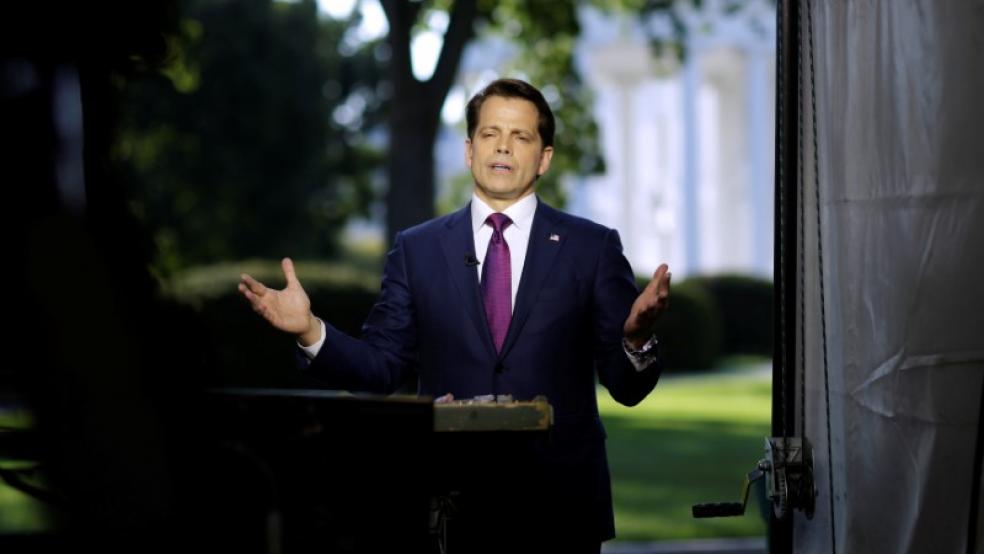The tension between the White House and the Federal Bureau of Investigation reached what could be a tipping point on Monday morning, when a spokesperson for President Trump said that the president does not accept FBI Director James Comey’s claim that there was no wiretapping of Trump Tower.
Over the weekend, Trump accused his predecessor Barack Obama of ordering a wiretap of Trump Tower during the final weeks of the 2016 presidential campaign. On Sunday, reports began appearing in major news outlets that Comey rejected the president’s claim outright and that he had asked the Department of Justice, which oversees the FBI, to issue a statement challenging Trump’s claim.
Related: Competing Narratives in Trump ‘Wiretap’ Story Lack Facts
The Justice Department has not weighed in so far. But after news of Comey’s pushback surfaced, White House Deputy Press Secretary Sarah Huckabee Sanders was asked by George Stephanopoulos on ABC’s Good Morning America if Trump accepted the FBI director’s word on the subject.
“You know, I don't think he does, George,” she replied. “I think he firmly believes that this is a storyline that has been reported pretty widely by quite a few outlets. The wiretapping has been discussed in The New York Times, BBC, Fox News and we believe that it should be looked at by the House Intelligence Committee.”
The stories she cited, as Stephanopoulos pointed out immediately, do not actually back up Trump’s claim that there was a presidential directive to place Trump Tower under surveillance.
Trump adviser Kellyanne Conway joined the fray on Fox & Friends, restating Trump’s claim that there was wiretapping and hinting that Trump knows things that others do not. "He's the president of the United States," Conway said. "He has information and intelligence that the rest of us do not." Whether Trump knows things that Comey does not was not addressed.
Trump himself invoked the specter of Richard Nixon and the Watergate scandal over the weekend, comparing Obama’s alleged surveillance of his office tower to the former president’s use of the executive branch to harass his enemies.
Related: Trump’s Weekend Tweets Cause an Uproar Over Wiretap Accusation
However, the more apt comparison here might be another moment in Nixon’s troubled history: his demand that Attorney General Elliot Richardson fire Special Prosecutor Archibald Cox, who was investigating the Watergate affair. Nixon’s order prompted Richardson to resign. He was followed out the door by Deputy Attorney General William Ruckelshaus, who also refused to fire Cox.
Richardson and Ruckelshaus were put in a position where they were forced to choose between serving the president and maintaining their personal integrity. Comey’s position is similar, except that rather than ask him to compromise his principles, Trump has questioned the FBI director’s integrity indirectly.
As one of the nation’s top law enforcement officials, Comey is in what seems to be an untenable position. Being questioned by the president, however unfairly, will open up Comey and the agents who work for him to claims that other cases are being brought under dubious circumstances. For that reason, his resignation has become a real possibility.
If he doesn’t resign, it’s hard to see how he doesn’t get fired. Given the extraordinary power of the FBI director, it would be difficult for the White House to fail to demand Comey’s resignation. If the president really believes that Comey isn’t speaking truthfully to the public, the only responsible step would be to immediately replace him.





